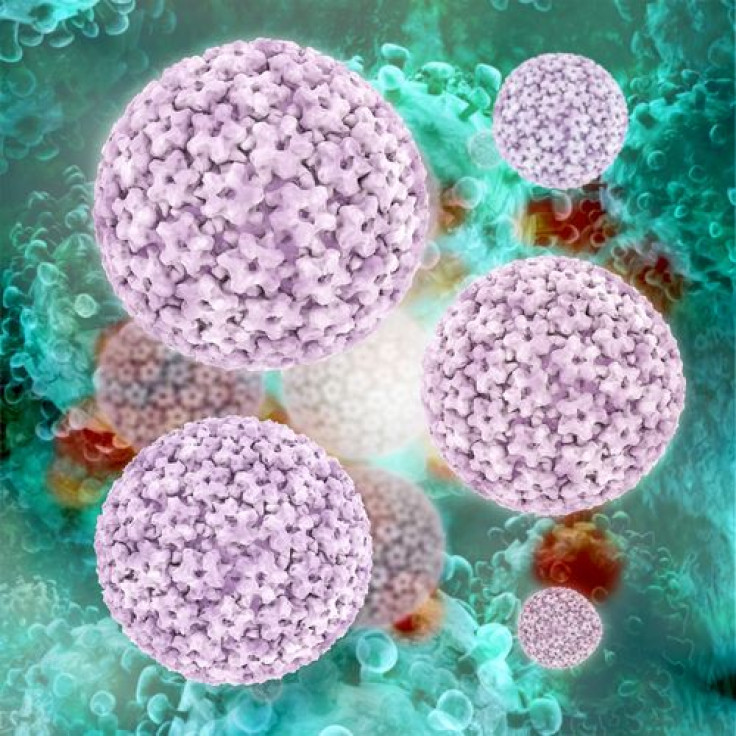HPV Infection Common Among 70% Of Americans, But Only 4% Had Strains That Lead To Cervical Cancer

Seventy percent of healthy Americans have the human papillomavirus (HPV). Researchers looked at tissue samples and examined DNA from 100 men and women and the found that 69 percent of the DNA studied were infected with HPV. The information was obtained from the U.S. National Institutes of Health database.
However, this isn’t something that people should worry too much about, the researchers say. “We don’t want people to be alarmed," said senior study researcher Dr. Zhiheng Pei, a pathologist at New York University's Langone Medical Center, Live Science reported.
When many hear HPV, they automatically think of sexually transmitted diseases and cervical cancer. However, as Pei told Live Science, there might be some benefits to certain HPV strains. “Infection with some 'good' HPV strains may stimulate the immune system so that the body is able to fight off the harmful, cancer-causing HPV strains,” he said.
"Our study offers initial and broad evidence of a seemingly 'normal' HPV viral biome in people that does not necessarily cause disease and that could very well mimic the highly varied bacterial environment in the body, or microbiome, which is key to maintaining good health," Dr. Pei, said in a news release from the NYU Langone Medical Center, Health Day reported.
The most common place for the virus was on the skin, the researchers found, in the total 109 strains of HPV out of the known 148 strains. The researchers said that these strains were harmless because the patients, when tested, did not have any signs of illness. And only four percent of people showed signs of HPV-16 or HPV-18, which are responsible for 70 percent of all cancer cases.
According to the National Cancer Institute, “High-risk HPV infection accounts for approximately 5 percent of all cancers worldwide. However, most high-risk HPV infections occur without any symptoms, go away within 1 to 2 years, and do not cause cancer.”
While the strains are common, the physicians say that more information and research is needed to understand how non-cancer-causing stains can interact with the cancer-causing strains. The researchers presented their findings at the American Society for Microbiology's annual meeting in Boston.
The Centers for Disease Control and Prevention warns people to be careful and safe when engaging in sexual activity because symptoms of HPV, even when a person is infected, might not present signs or symptoms. HPV can spread through oral, vaginal, or anal sex with someone who has the virus — most commonly spread during vaginal or anal sex.
Pei also said that he still recommends getting vaccinated using the Food and Drug Administration-approved drug, Gardasil. This series of injections is approved for people ages 9 to 26 to prevent against cancers caused by certain HPV strains.



























